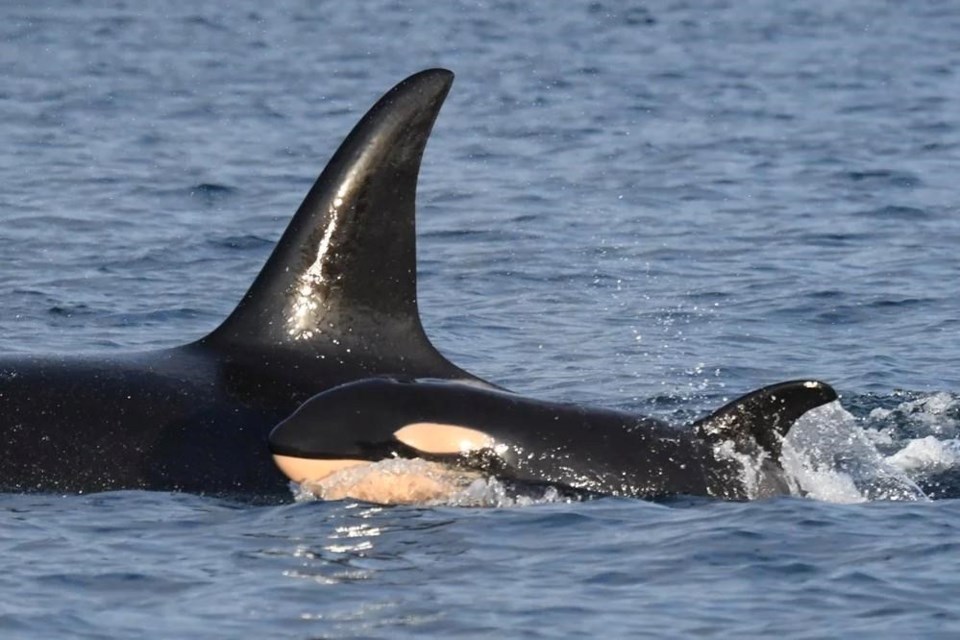VANCOUVER — The sex of the newest calf born in the waters off British Columbia to a critically endangered pod of killer whales has been determined, and researchers say the discovery offers hope for struggling southern resident orcas.
An online post from the Washington state-based Center for Whale Research says the calf, likely born in late February, is a female member of J pod, one of only three remaining pods of almost exclusively salmon-eating orcas off the northwest coast.
The calf is the first born to J-pod since September 2020 and was named J59 shortly after birth.
The centre says having another female is good news for the just over 70 southern resident orcas because populations within the species' three pods — J, K, and L — are "largely limited by the number of reproductively aged females."
The post from the centre says "while one calf won’t save the population," it hopes J59 can reach maturity and "contribute to future generations of southern residents."
The post says J59's sex was confirmed during aerial observation of J pod when all the whales were very social and rolling at the surface, allowing researchers to snap photos of the little calf's underside.
J59 was judged to be in good health when she was first spotted travelling with her mother, J37, on March 1.
However, the centre warns mortality among new calves is very high and, as of January, there were just 73 orcas remaining in the three pods.
J59's birth and the birth of a calf in K-pod, the first in that family group since 2011, are considered positive signs.
This report by The Canadian Press was first published May 27, 2022.
The Canadian Press



